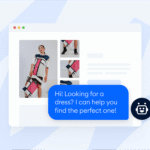Have you watched Andrej Karpathy’s keynote at AI Startup School in San Francisco? He explained the shift of the software from augmented through orchestrated, to eventually reaching an automated state.
What this means is that right now we’re using software as a gadget that we’re in full control of. We’re already experiencing a shift in technology becoming more and more capable but we still need to heavily contribute for it to work properly. In the future, software will undergo a change to work independently.
And with Gartner estimating that 33% of enterprise software applications will include agentic AI, we have some excited times ahead of us.
But we’re not there yet.
So, where are we with agentic AI? And what companies are driving this technology? Let’s find out.
Use the best agentic AI company for customer service
9 best agentic AI companies
You’ve probably heard of agentic AI. So, let’s check out the companies using this technology and driving the innovation. Here are reviews of the best agentic AI companies available on the market today:
1. Tidio
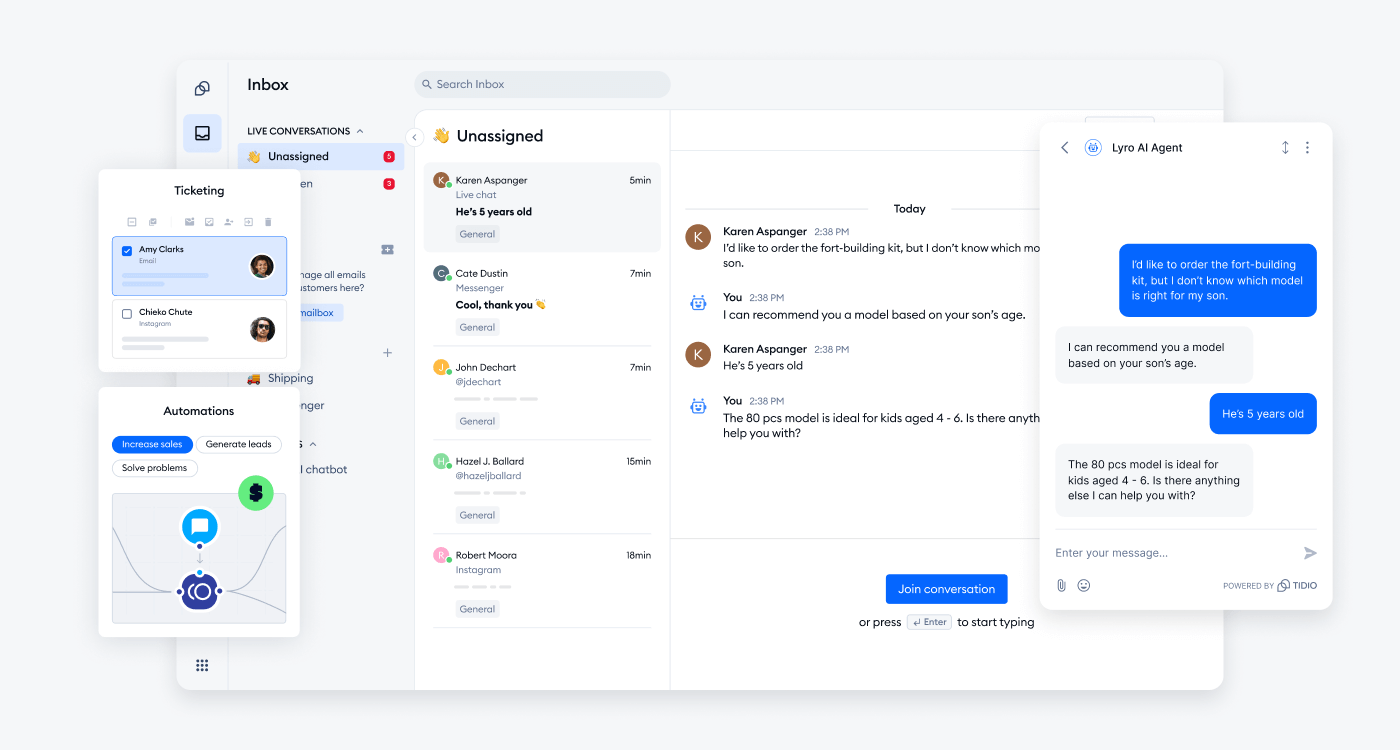
Rating: 4.7/5 ⭐️ (1,750+ reviews on G2)
Lyro is best for businesses looking to automate customer service with AI. This is one of the leading agentic AI companies powered by Claude LLM. It delivers one of the most effective conversational chatbots on the market that engage website visitors in natural, human-like conversations. In turn, this helps you improve support and drive more sales.
There’s no need for manual setup. Lyro trains itself using your content, and can resolve up to 70% of FAQs automatically. It’s available 24/7, expanding your support capacity without increasing headcount.
Curious if it lives up to the hype? Try it yourself to see why it stands out.
Main features
Pricing:
- 7-day free trial available
- Free version available
- Starter ($24.17/mo)
- Growth (starts at $49.17/mo)
- Plus (starts at $749/mo)
- Premium (starts at $2999/mo)
Specialises in: customer service AI
2. Microsoft Copilot
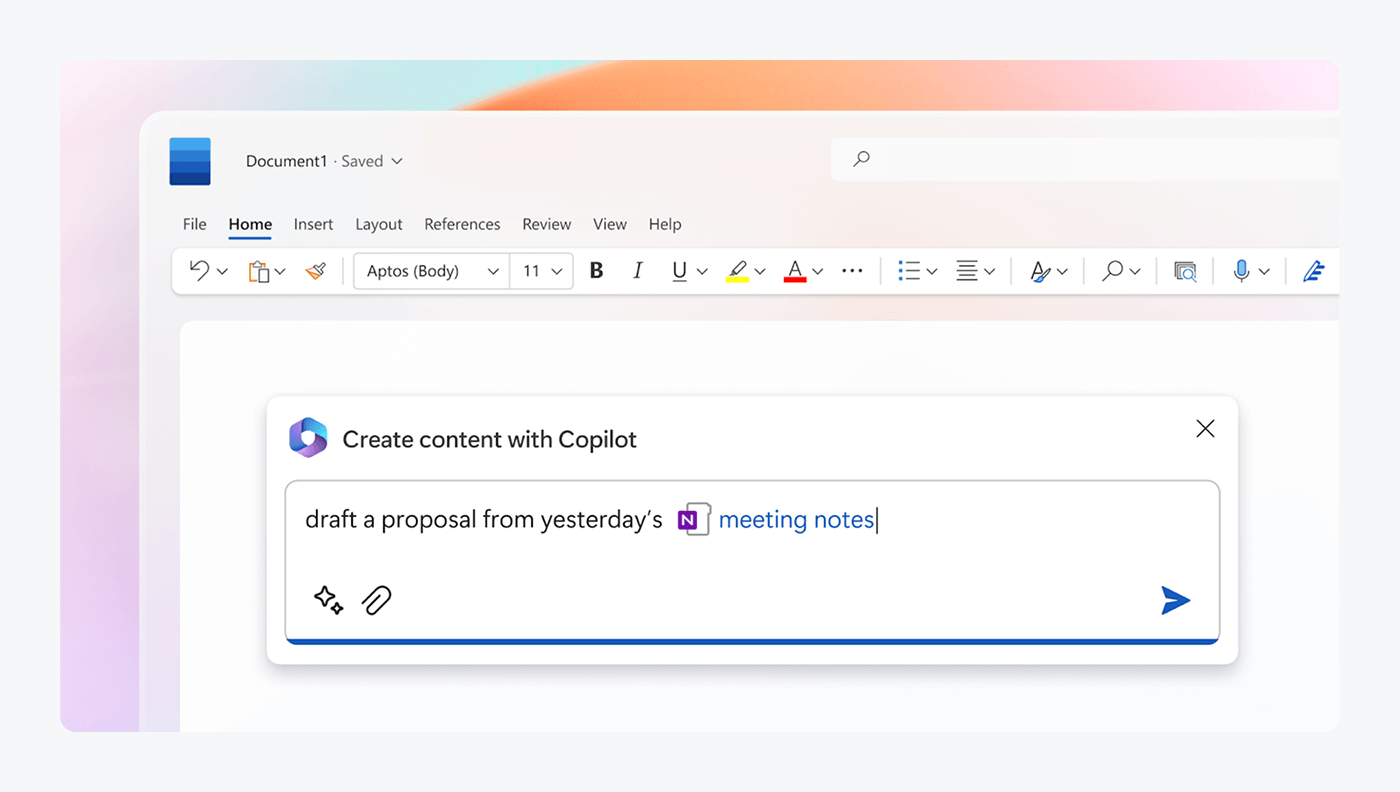
Rating: 4.3/5 ⭐️ (80+ reviews on G2)
Microsoft Copilot is your intelligent AI companion, seamlessly integrated into the Microsoft 365 ecosystem. With the power of copilot, agents can create custom AI solutions to automate specific tasks, streamline workflows, and boost productivity without writing a single line of code.
Whether you’re a business leader, educator, developer, or IT professional, Copilot helps you work smarter and reshape the way you get things done.
Pros
- Native Microsoft 365 integration
- Customizable workflows
- Enterprise-grade security
Cons
- Lags when generating longer content
- Doesn’t always understand the context
Pricing:
- Free 1-month trial
- Microsoft Copilot Studio ($200.00/mo)
- Microsoft Copilot Studio (Pay-as-you-go)
- Microsoft 365 Copilot ($31.50/mo)
Specialises in: automating routine tasks across Microsoft apps
Did you know that…
Microsoft announced an open-source tool for websites to integrate AI-powered natural language search. The project is built on Model Context Protocol, or MCP, which is the standard that allows AI agents to interact with databases and services in a controlled way. This is what the future of agentic search might look like and it seems quite promising.
3. UiPath
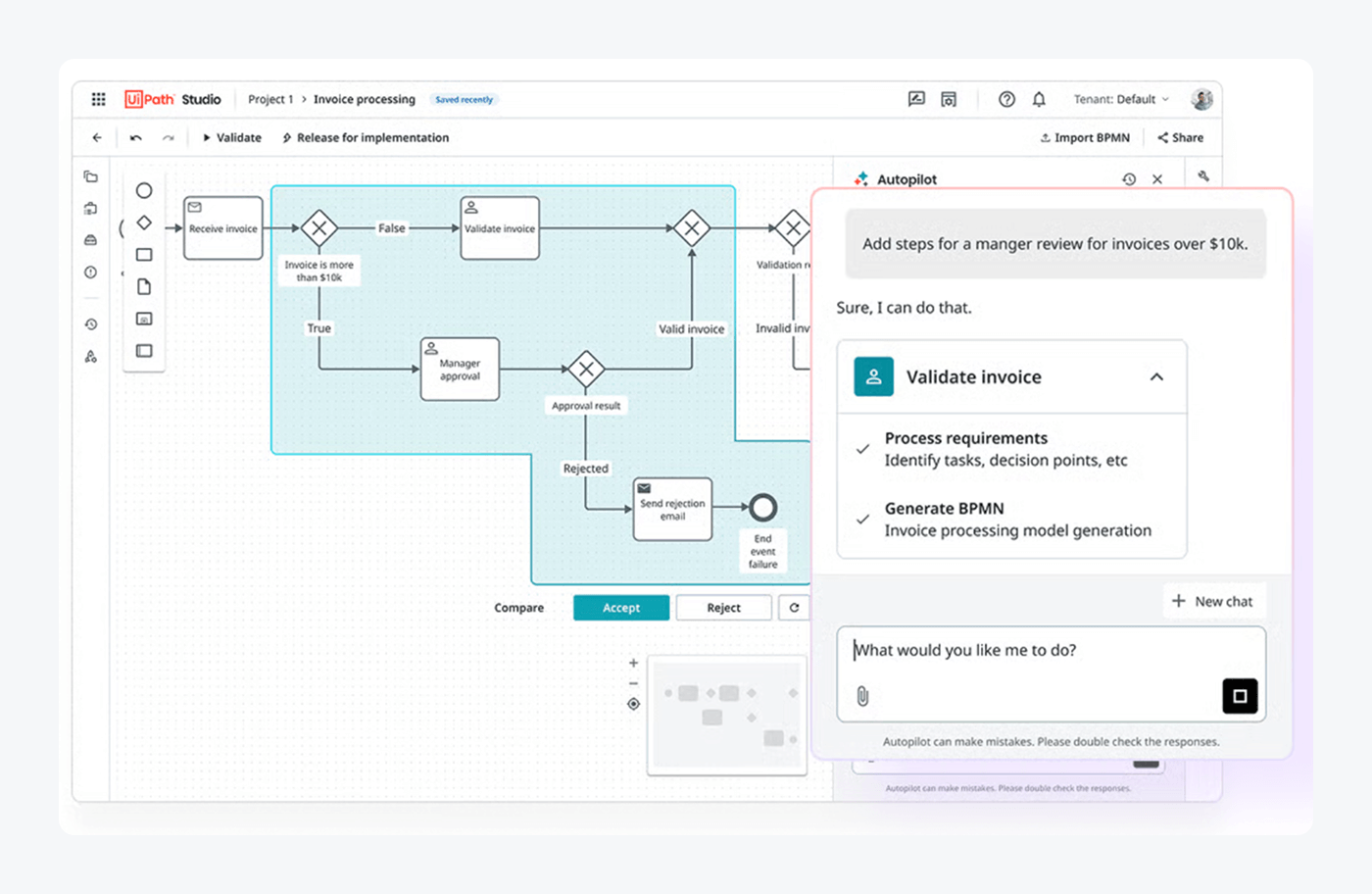
Rating: 4.6/5 ⭐️ (7,000+ reviews on G2)
UiPath is one of the leading companies in agentic AI that blends robotic process automation (RPA) with artificial intelligence. It enables businesses to orchestrate complex, cross-functional workflows across different systems. Designed for scalability, it caters to enterprise teams in industries like finance, insurance, healthcare, and other compliance-driven sectors. This helps them streamline document-heavy, data-rich operations.
With a flexible, open architecture and robust governance, UiPath helps both technical and non-technical users to and manage intelligent automation solutions.
Pros
- Customizable AI agent builder
- In-depth data analysis
- RPA combined with intelligent decision-making
Cons
- Limited visibility and control over how context is gathered and used
- Complex interface with lack of support materials
Pricing:
- Free 60-day trial
- Basic (Starting at $25/mo)
- Standard → contact sales team
- Enterprise → contact sales team
Specialises in: compliance needs
4. Nvidia AI
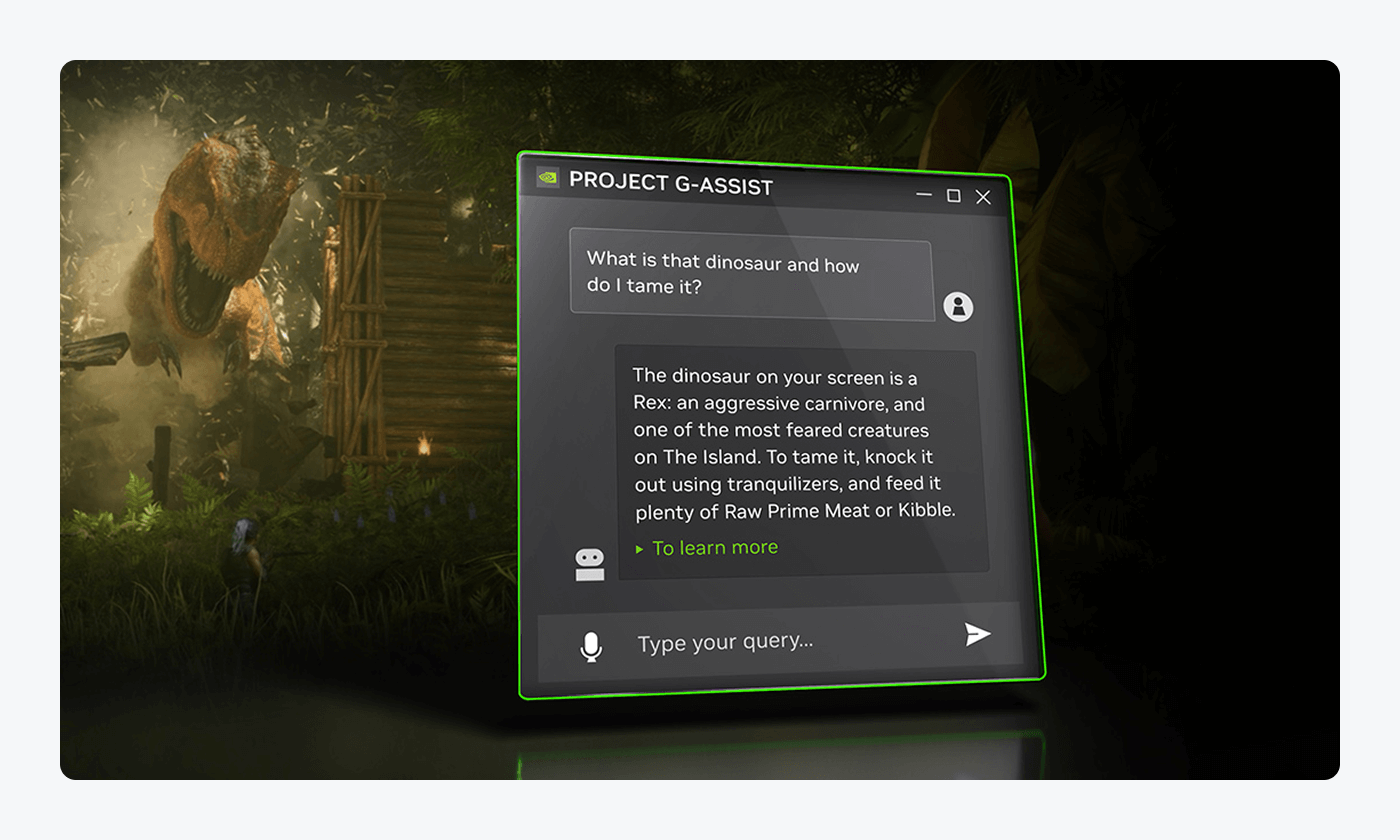
Rating: 4.5/5 ⭐️ (13+ reviews on G2)
NVIDIA Agentic AI is an advanced enterprise-grade AI solution that specializes in intelligent task execution. It transforms vast and complex enterprise data into actionable insights through self-improving AI agents.
By combining technologies like NVIDIA NeMo, NVIDIA NIM, and Blueprint workflows, this AI agentic company empowers organizations to build and deploy intelligent agents with minimal overhead. These agents are capable of researching and conversing like digital coworkers but also continuously improve through feedback loops.
Pros
- Autonomous AI agents
- Customizable, fast prototyping
- Optimized GPU performance
Cons
- Licensing and hardware requirements can be expensive
- Tightly integrated with NVIDIA GPUs, limiting flexibility for organizations using other hardware ecosystems
Pricing:
- Contact sales team for pricing
Specialises in: data analysis and data management
Did you know that…
Once again, Nvidia is on top of innovation. The company unveiled new GeForce RTX SUPER GPUs and RTX-powered AI laptops that deliver fast, local generative AI performance for both consumers and developers. With over 100 million RTX GPUs already in use, NVIDIA is advancing AI on PCs through software like TensorRT-LLM, Chat with RTX, and AI Workbench.
5. IBM Watsonx
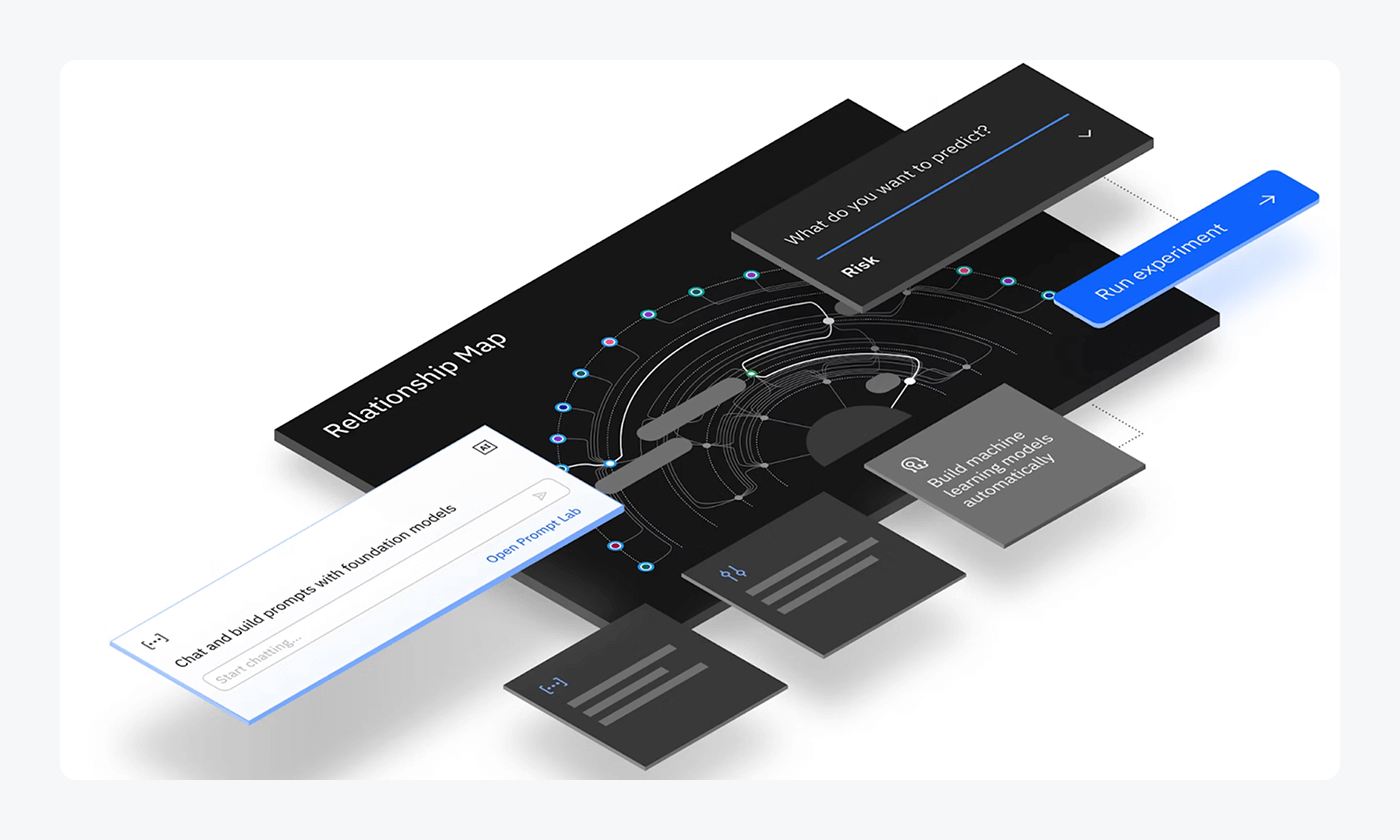
Rating: 4.5/5 ⭐️ (75+ reviews on G2)
IBM watsonx.ai is a comprehensive AI and machine learning platform designed to help organizations rapidly develop and deploy generative AI models and traditional ML applications. It provides an integrated studio that spans the entire AI lifecycle, from data ingestion and model training to finetuning, validation, and deployment. With watsonx.ai, businesses can accelerate the creation of AI-powered applications using both open-source and proprietary models.
Its open, hybrid architecture allows seamless access to both structured and unstructured data, enabling more accurate and business-specific AI outcomes. This agentic AI development company helps organizations to optimize workflows faster and control costs using customized models.
Pros
- Generative AI and ML studio
- Support for open-source models and multi-cloud deployment
- Built-in tools for data privacy, transparency, and regulatory compliance
Cons
- Overwhelming and complex customization of workflows
- Technical knowledge necessary
Pricing:
- Free trial available
- Contact sales for pricing
Specialises in: workflow productivity in enterprise businesses
6. Oracle
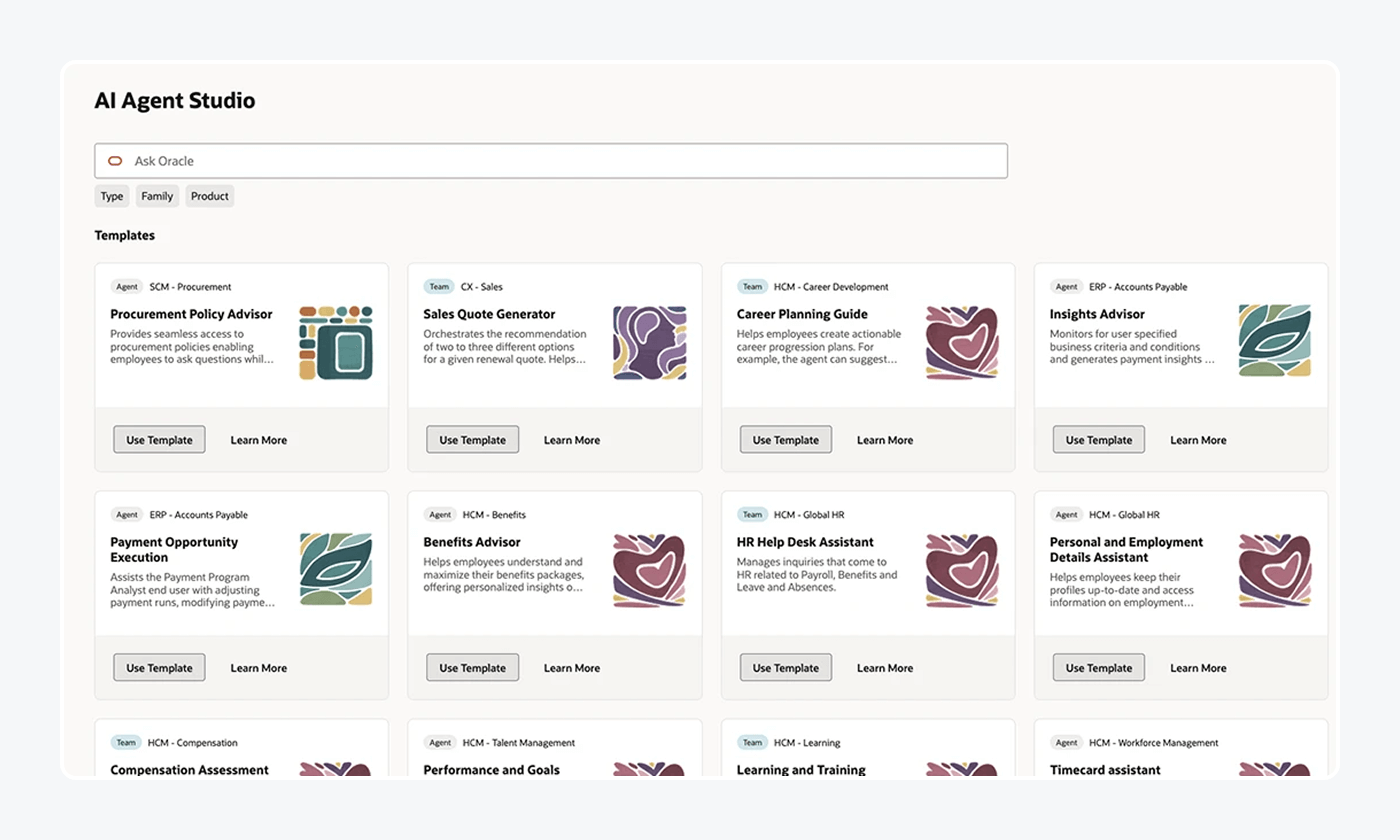
Rating: 4.3/5 ⭐️ (450+ reviews)
Oracle is one of the top companies working on agentic AI that is designed to help enterprises build and manage intelligent AI agents at scale. Operating on Oracle Cloud Infrastructure (OCI), it leverages advanced large language models (LLMs) and retrieval-augmented generation (RAG) to create conversational agents. These are capable of understanding natural language, accessing enterprise knowledge bases, and automating complex workflows.
The platform offers AI that is tailored to handle tasks such as customer service automation, legal research, revenue analytics, or recruiting. And it does it while maintaining context and providing accurate, data-backed responses.
Pros
- Conversion of plain language into SQL
- Retrieval-augmented generation (RAG)
- Multi-turn chat with context retention
Cons
- Compute service faces challenges with dynamic scaling
- Migration difficulties
Pricing:
- Generative AI Agents ($0.003/transaction)
- Knowledge Base Storage ($0.0084/gigabyte storage per hour)
- Data Ingestion ($0.0003/transaction)
Specialises in: context-aware insights from both structured and unstructured data sources
Did you know that…
Google has released its Agent2Agent (A2A) protocol in April this year. This will allow AI tools to talk to each other, and work together across different business apps. The protocol will help users get more value from AI agents that become better at working across the entire company systems.
7. Sierra AI
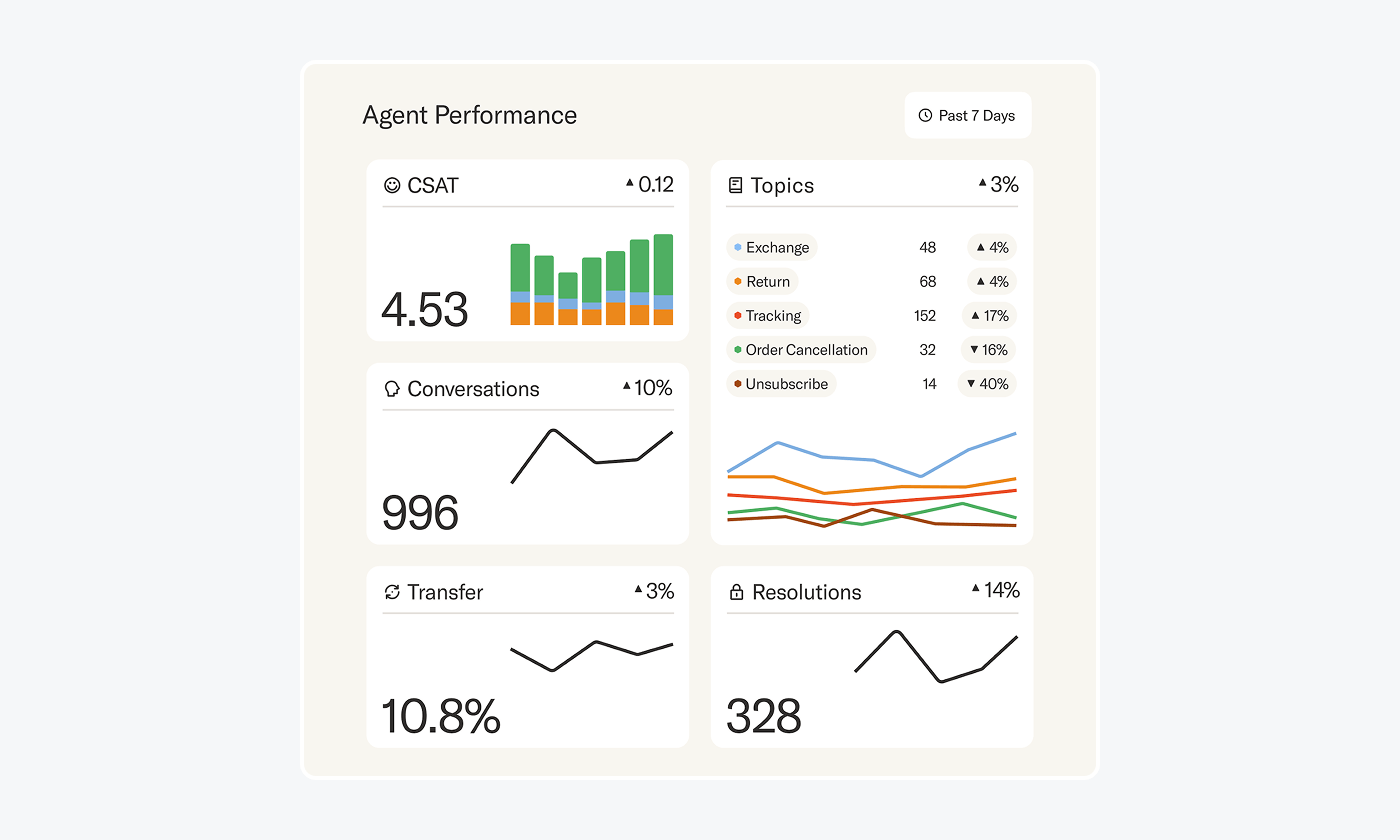
Rating: 4.3/5 ⭐️ (9+ reviews on G2)
Sierra AI is a full-stack conversational AI platform designed for customer service teams. It allows businesses to build and scale agentic AI that handle complex customer interactions, like processing exchanges or managing subscription changes, across different channels.
This software offers customer service AI agents powered by a Knowledge Engine that integrate internal documentation, FAQs, and policies to provide accurate, context-aware responses. And when issues require human intervention, Sierra ensures seamless handoffs with intelligent routing and auto-generated conversation summaries.
Pros
- Clean and easy-to-navigate interface
- Omnichannel support across chat, voice, SMS, email, and messaging
- Secure integration with internal systems
Cons
- Limited customization options
- Generic responses that lack depth
Pricing:
- Contact sales for pricing
Specialises in: multichannel customer service automation
8. Hippocratic AI

Rating: N/A
Hippocratic AI is one of the best agentic AI companies designed to address the global shortage of healthcare professionals by enabling organizations to deploy non-diagnostic AI agents. These agents can handle low-risk tasks traditionally performed by nurses, such as chronic care management and follow-up support.
The platform empowers health systems to scale their clinical operations, while ensuring patient safety. That’s because the software offers a robust safety-focused language model and patented architecture aligned with clinical standards.
Pros
- AI agent app store with clinicians that publish healthcare agents
- No-code agent trainer for licensed professionals
- Clinician creator program for building safe, practical AI applications
Cons
- Limited availability
- Regular updates required
Pricing:
Specialises in: safe, non-diagnostic AI agents for scalable clinical support.
9. Decagon
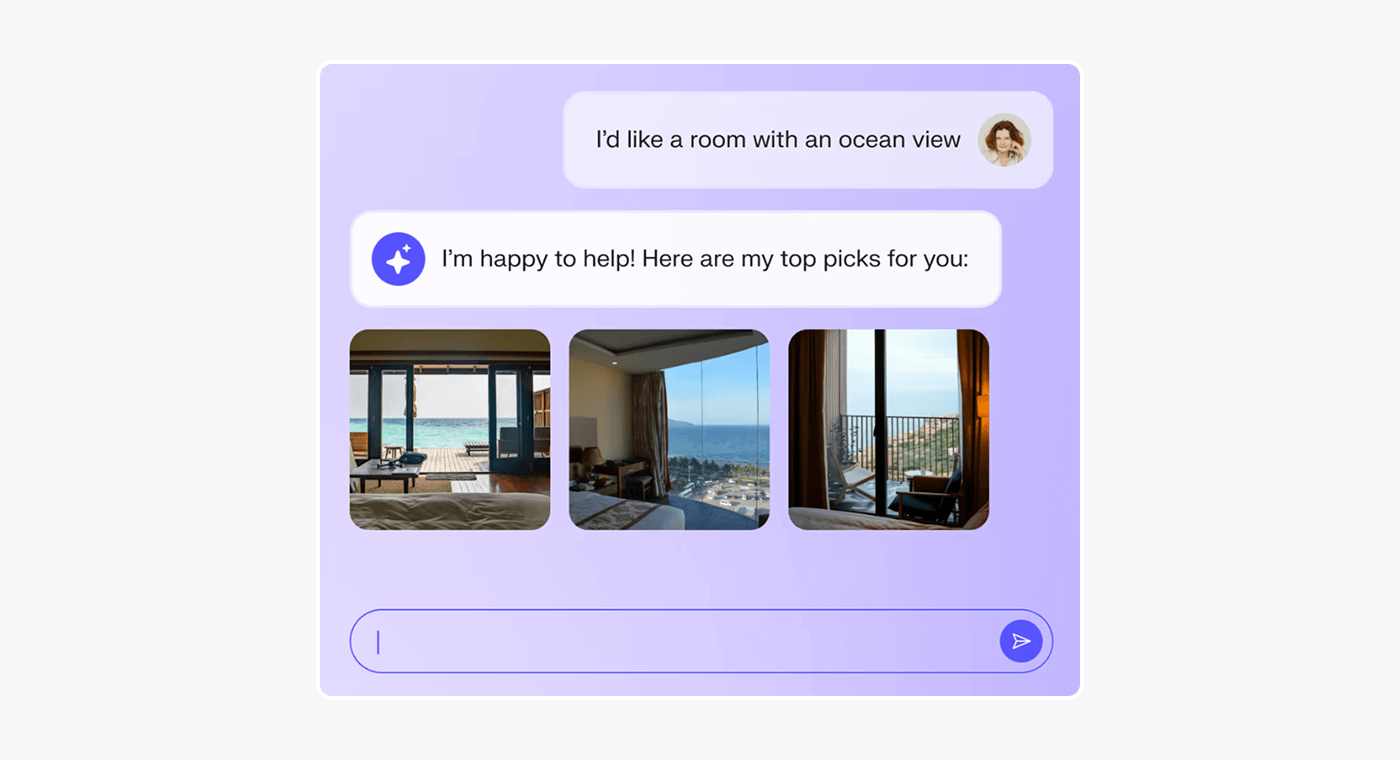
Rating: 4.9/5 ⭐️ (18+ reviews on G2)
Decagon is one of the most advanced companies developing agentic AI for customer support teams. It caters for businesses looking to modernize and streamline their operations. By integrating seamlessly with existing tools, Decagon allows teams to deploy high-performing AI agents with minimal engineering lift.
Its intuitive interface and agent operating procedures (AOPs) simplify the creation of customized workflows. This enables dynamic, action-oriented conversations that improve resolution speed and customer satisfaction.
Pros
- Intuitive tools to build and manage AI workflows without code
- AI copilot for human agents
- AI-powered insights
Cons
- The platform is still developing and lacks maturity
- Features, such as user roles and audit logs, are in the primitive stages
Pricing:
- Contact sales team for demo
Specialises in: agent assistance AI
Did you know that…
Decagon announced that it received $131 million in its recent series C funding which raises the yearly total funding to $231 million. Investors valued the company at $1.5 billion and the demand exceeded the capacity by 5 times, highlighting Decagon’s accelerating momentum and market leadership
What are the main challenges companies face when implementing agentic AI?
Implementing agentic AI is challenging due to complex implementation, data security, as well as the disappearance of human connections. Maintaining user trust is crucial, so how to automate processes but keep customers happy?
Here are the main challenges that companies face when implementing agentic AI and how to mitigate them:
1. Technical challenges
Implementing AI systems often presents significant technical hurdles. Many companies struggle with the initial integration of AI agents into their existing technology stack, which can involve complex customization and integrations with legacy systems.
Beyond implementation, maintaining AI requires continuous monitoring, regular updates, and finetuning to keep it accurate. Without dedicated technical expertise, these demands can quickly overwhelm internal teams, resulting in performance issues or stalled deployments.
A solution to this challenge is Lyro that is easy to implement and manage. All you need to do is insert a link to your knowledge base or FAQ page into Tidio’s platform and Lyro will scrape all of your question-answer pairs. Once it’s done, you can review them and the software will be ready to start working for you.
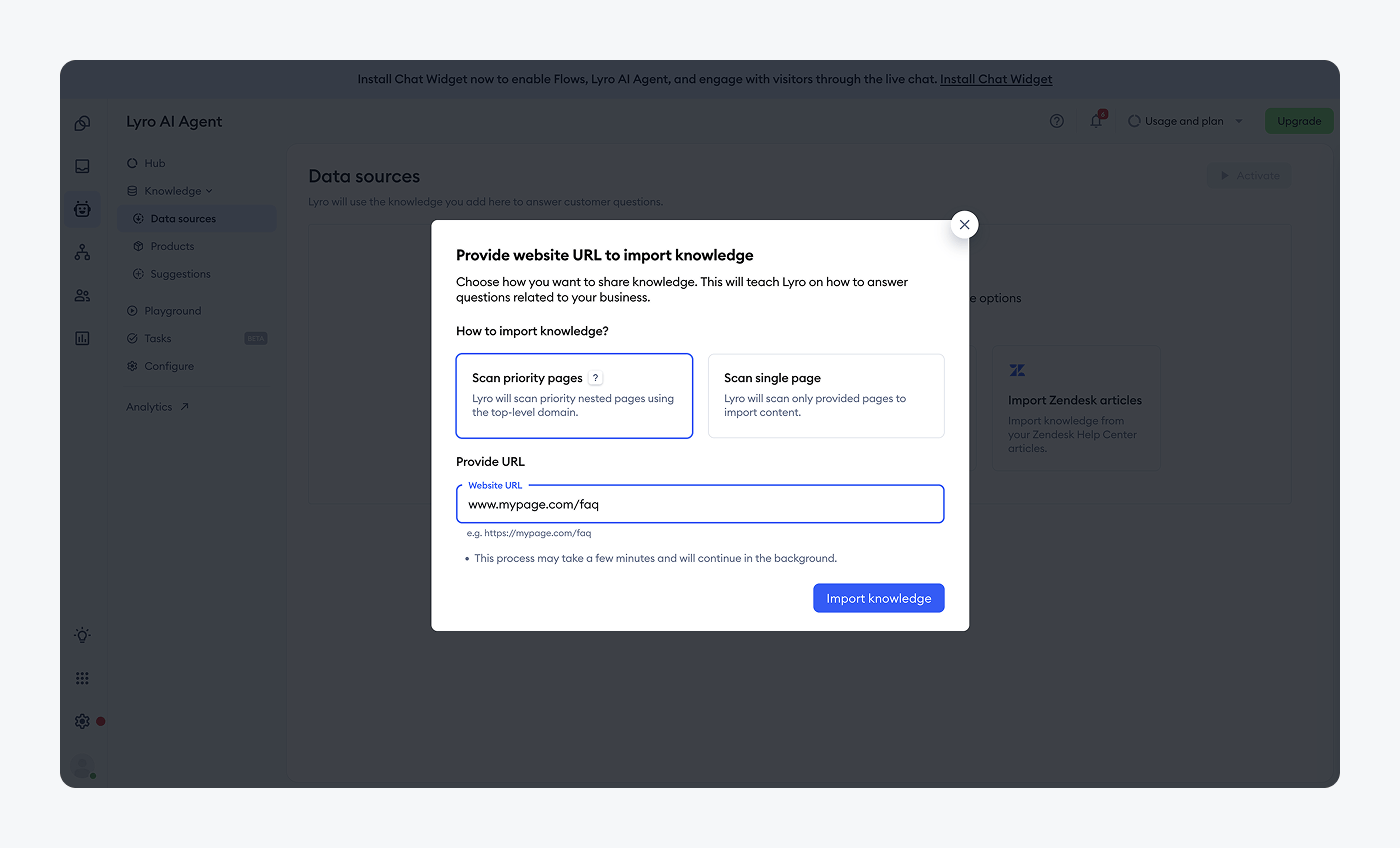
2. Data and security challenges
Data management and security are critical concerns when deploying AI. These systems often rely on large volumes of sensitive data, such as customer information, transaction records, and proprietary business insights. Ensuring this data is securely stored, processed, and shared is necessary to maintain compliance with data privacy regulations.
To overcome this challenge, you should choose an agentic AI company that is GDPR and CCPA compliant. You can request a full compliance report from the platforms you consider using before signing up to ensure they meet your needs.
3. Human connections challenges
One of the more subtle but impactful challenges of implementing AI lies in preserving genuine human connection. AI agents, no matter how advanced, still struggle to convey the nuances of human empathy and understanding. Especially in sensitive customer interactions. Over-reliance on AI can lead to frustration or disengagement of customers.
A solution to this challenge is using a hybrid approach. So, utilize AI for repetitive tasks but ensure that the visitor always has an option to speak to a human agent. Also, make sure the software you use redirects people to a human agent if it doesn’t understand the request or the inquiry is above its capabilities, just like Lyro does it.
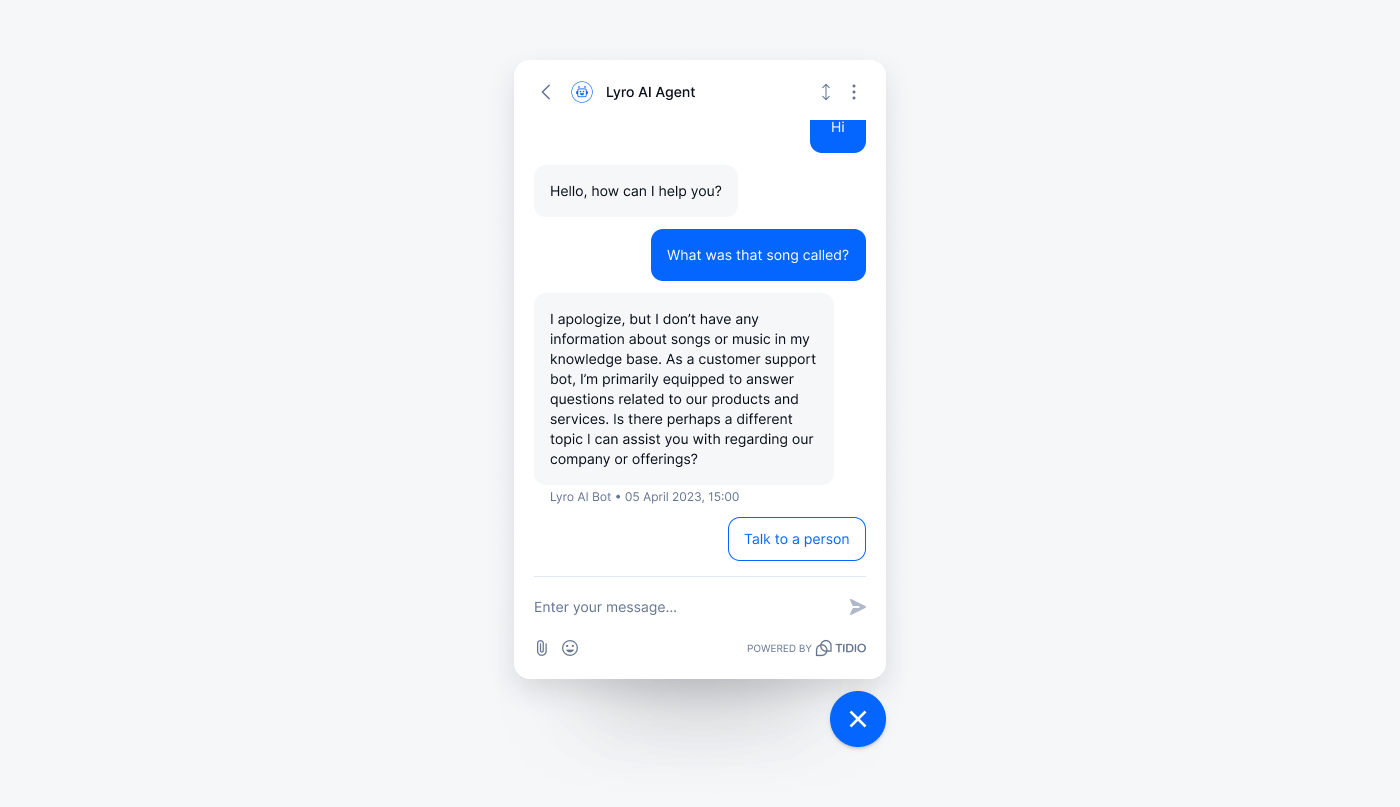
Agentic AI companies: key takeaway
Agentic AI companies cater to a broad range of industries. These include customer service (Tidio, Sierra), enterprise productivity (IBM Watsonx, Oracle), healthcare (Hippocratic AI), and task automation (UiPath, Microsoft Copilot).
Keep in mind that leading platforms offer no-code or low-code solutions, empowering both technical and non-technical teams to deploy and manage AI agents. Moreover, the field is evolving fast, with continuous improvements in agent capabilities, personalization, and contextual understanding.
Even though implementing agentic AI comes with hurdles, smart solutions and hybrid approaches can effectively mitigate the issues.
If you’re looking for a practical, easy-to-implement agentic AI solution, Lyro is a top choice. Powered by the Claude LLM, it automates up to 70% of customer queries with minimal setup. Simply upload your FAQ or knowledge base and let Lyro handle the rest. It delivers natural, human-like conversations that enhance customer experience and drive sales. On top of that, it intelligently routes complex queries to human agents to ensure the right balance between automation and empathy.
Ready to see the difference Lyro can make?
Scale your customer experience with agentic AI


